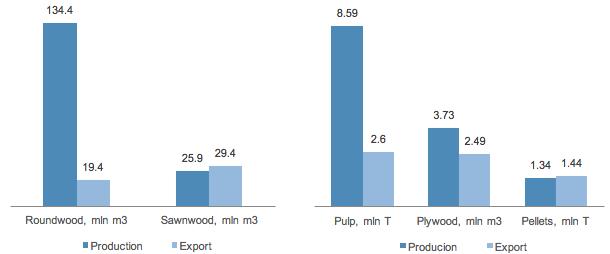
Favorable export markets in 2017 formed a steady growing demand for the main wood based products in Russia, according to the report 'Russian Forest Based Industries in 2017'.
Growth of wood pellet production in Russia by 34.1% in 2017 will continue at a rapid pace in the coming years
Favorable export markets in 2017 formed a steady growing demand for the main wood based products in Russia, according to the report 'Russian Forest Based Industries in 2017'. At the same time, the turn of the Russian economy from a recession to growth (GDP grew by 1.5%) led to a revival of demand for products aimed at the domestic market.In 2017, Russia sharply increased the import of woodworking machines (+ 60.7%) after a decline in 2016 by 15.6%. This may indicate that the wood processing companies have adapted to the current exchange rate of the national currency. Investments in fixed assets in the production of paper and paper products increased by 33.3%, and in wood processing (excluding furniture production) - by 5.5%.The process of changing the structure of exports from raw materials to wood processing products continues: in 2017, log exports from Russia decreased by 1.6% with an increase in lumber exports by 10.1%. The largest external consumer of Russian forest products is China. In 2017 the share of the country in the Russian exports of logs was 66%, in the exports of lumber - 55%, in the supply of pulp - 58%.